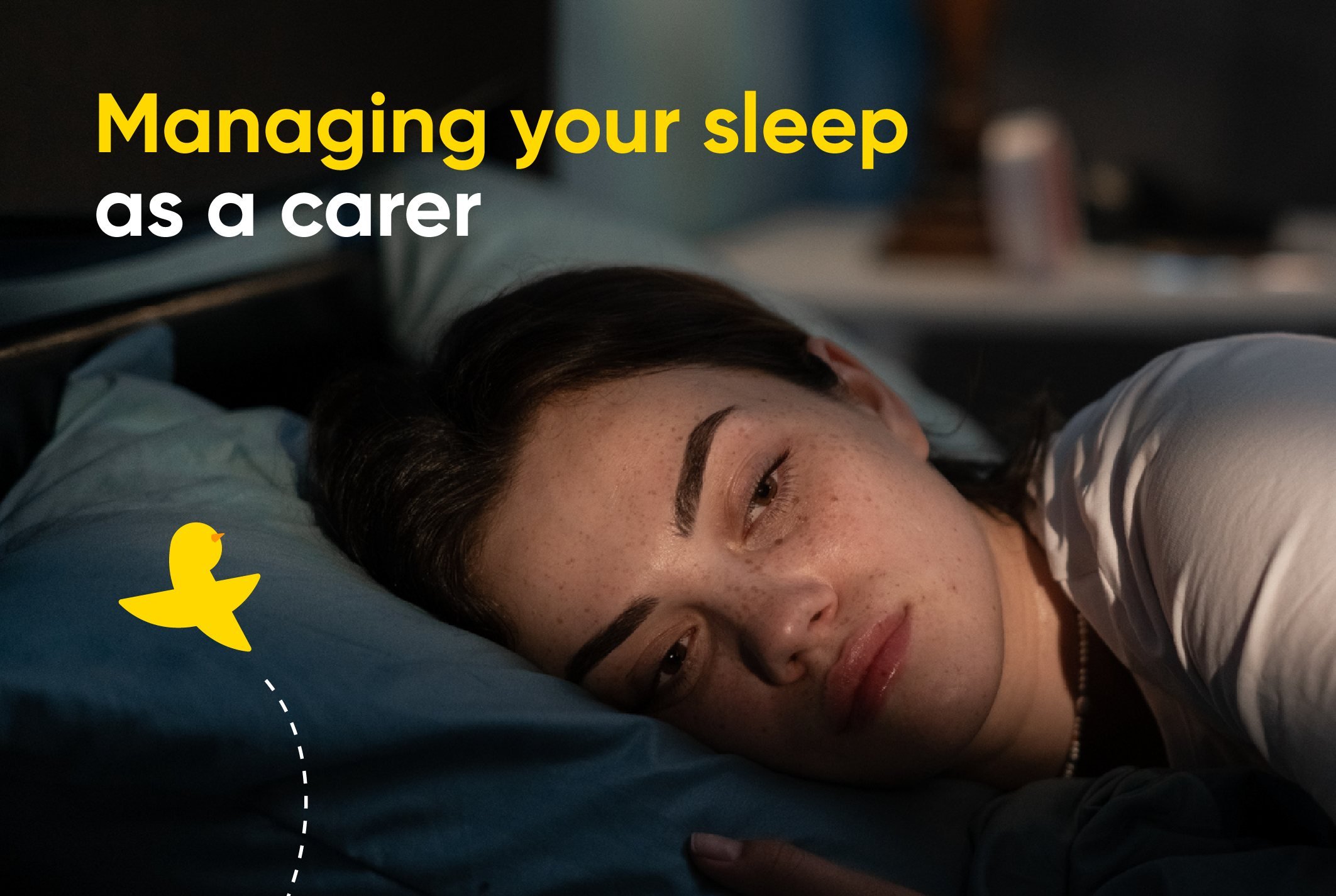Managing your sleep as a carer
Caring for a loved one or working in social care can be rewarding, but the physical and emotional demands – especially during later hours – can lead to recurring sleep issues.
For carers, ongoing sleep deprivation impacts daily functioning, causing constant fatigue, trouble concentrating, and feelings of discouragement. Over time, lack of sleep can significantly affect your wellbeing, increasing risks for conditions such as hypertension, type 2 diabetes, and depression.
What causes sleep issues?
There are several pressures that can contribute to ongoing sleep issues, including:
Financial worries.
Emotional strain.
Feelings of isolation.
Heightened anxiety.
Learning how to support yourself through your sleep troubles is essential. This can include recognising the importance of self-care, establishing a sleep routine, seeking support from your wider support system, or using a remote home monitoring system to ease pressures. Let’s explore these further.
What can you do to improve your sleeping habits?
Carers UK offers several effective techniques to help restore your sleep pattern, including:
Maintaining a Consistent Sleep Schedule: Establishing a regular bedtime and wake-up time supports a healthy sleep rhythm, which is crucial when caregiving disrupts your natural rest patterns.
Limit Exposure to Bright Lights / Screens: Avoid looking at bright screens or harsh lights just before going to bed, as they can stimulate your brain making it harder to fall asleep.
Relax Before Going to Bed: Engage in calming activities before bedtime, such as reading, listening to music, or by taking a long shower – to prepare your mind and body for a restful sleep.
Start Journaling: Keep a notepad or journal nearby to jot down thoughts and feelings, allowing you to process them later without carrying the weight of worries into your sleep.
Invest in Technology-Enabled Care (TEC) Devices: Using TEC devices, such as motion detector sensors, to support your care journey could help take some of the stress out of your day-to-day demands.
How can a smart home monitoring system help to prevent sleeping troubles?
There are several benefits that technology enabled care devices offer to care providers during their day-to-day routines - helping promote healthy sleeping habits. With Canary Care’s smart home monitoring system, caregivers can stay informed about the safety and wellbeing of the ones they care for.
Our multifunction sensors provide 24/7 insights into activity in key areas of the home such as the living room or bedroom, while also tracking temperature and light levels. When paired with our door magnets, users can monitor when people are exiting or entering the property and track when a loved one has opened a kitchen cupboard or the fridge to prepare food. All activity data is sent to the Canary Care portal, triggering real-time updates with SMS or email notifications, ensuring swift action can be taken if anything out of the ordinary is detected.
Leveraging smart care technology can support independent senior living but also support carers and their sleeping routines – offering a reliable system that helps to reduce pressures, stressors, and anxieties that would usually disturb a good night's sleep.
Where can you seek extra support?
As a carer, feelings of isolation can be common, but sharing your concerns with someone can have a positive impact on your peace of mind. Several support systems are available to help you regain control over your sleep habits, especially if managing them alone feels overwhelming.
Speaking with your GP can be a great first step to address stressors affecting your sleep, such as anxiety, depression, or physical pain. They can help you identify any undiagnosed issues like sleep apnoea or chronic fatigue, which might be impacting your quality of rest. If you have specific health concerns, your GP is the ideal starting point for getting personalised recommendations.
Connecting with family or friends can also offer emotional relief. Even if they can’t change the situation directly, knowing that they’re there to listen can reduce stress, provide comfort, and allow you to take time for yourself while they take over some of the care duties.
Local support groups and services for unpaid carers can provide valuable assistance, such as sitting services, respite care, and emotional support to relieve daily pressures. If you haven’t already, consider obtaining a carers assessment from your local council or trust. This can open the door to a wider range of essential resources; from practical help and training to specialised care equipment - helping you better manage caregiving and sleep.

